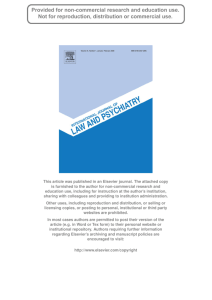DEFINITIONS OF CRIMES OF SEXUAL VIOLENCE IN THE ICC
advertisement
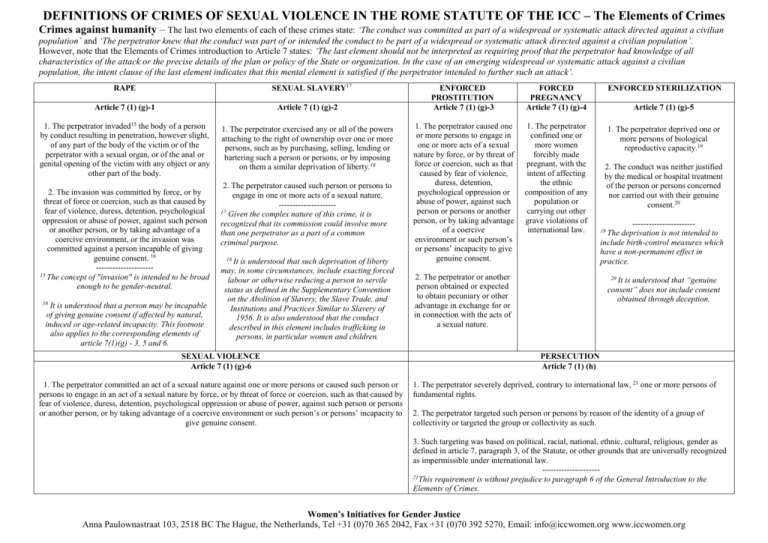
DEFINITIONS OF CRIMES OF SEXUAL VIOLENCE IN THE ROME STATUTE OF THE ICC – The Elements of Crimes Crimes against humanity – The last two elements of each of these crimes state: ‘The conduct was committed as part of a widespread or systematic attack directed against a civilian population’ and ‘The perpetrator knew that the conduct was part of or intended the conduct to be part of a widespread or systematic attack directed against a civilian population’. However, note that the Elements of Crimes introduction to Article 7 states: ‘The last element should not be interpreted as requiring proof that the perpetrator had knowledge of all characteristics of the attack or the precise details of the plan or policy of the State or organization. In the case of an emerging widespread or systematic attack against a civilian population, the intent clause of the last element indicates that this mental element is satisfied if the perpetrator intended to further such an attack’. SEXUAL SLAVERY17 RAPE Article 7 (1) (g)-1 Article 7 (1) (g)-2 1. The perpetrator invaded15 the body of a person by conduct resulting in penetration, however slight, of any part of the body of the victim or of the perpetrator with a sexual organ, or of the anal or genital opening of the victim with any object or any other part of the body. 1. The perpetrator exercised any or all of the powers attaching to the right of ownership over one or more persons, such as by purchasing, selling, lending or bartering such a person or persons, or by imposing on them a similar deprivation of liberty.18 2. The invasion was committed by force, or by threat of force or coercion, such as that caused by fear of violence, duress, detention, psychological oppression or abuse of power, against such person or another person, or by taking advantage of a coercive environment, or the invasion was committed against a person incapable of giving genuine consent. 16 --------------------15 The concept of "invasion" is intended to be broad enough to be gender-neutral. 16 It is understood that a person may be incapable of giving genuine consent if affected by natural, induced or age-related incapacity. This footnote also applies to the corresponding elements of article 7(1)(g) - 3, 5 and 6. 2. The perpetrator caused such person or persons to engage in one or more acts of a sexual nature. --------------------17 Given the complex nature of this crime, it is recognized that its commission could involve more than one perpetrator as a part of a common criminal purpose. 18 It is understood that such deprivation of liberty may, in some circumstances, include exacting forced labour or otherwise reducing a person to servile status as defined in the Supplementary Convention on the Abolition of Slavery, the Slave Trade, and Institutions and Practices Similar to Slavery of 1956. It is also understood that the conduct described in this element includes trafficking in persons, in particular women and children. SEXUAL VIOLENCE Article 7 (1) (g)-6 1. The perpetrator committed an act of a sexual nature against one or more persons or caused such person or persons to engage in an act of a sexual nature by force, or by threat of force or coercion, such as that caused by fear of violence, duress, detention, psychological oppression or abuse of power, against such person or persons or another person, or by taking advantage of a coercive environment or such person’s or persons’ incapacity to give genuine consent. ENFORCED PROSTITUTION Article 7 (1) (g)-3 FORCED PREGNANCY Article 7 (1) (g)-4 ENFORCED STERILIZATION 1. The perpetrator caused one or more persons to engage in one or more acts of a sexual nature by force, or by threat of force or coercion, such as that caused by fear of violence, duress, detention, psychological oppression or abuse of power, against such person or persons or another person, or by taking advantage of a coercive environment or such person’s or persons’ incapacity to give genuine consent. 1. The perpetrator confined one or more women forcibly made pregnant, with the intent of affecting the ethnic composition of any population or carrying out other grave violations of international law. 1. The perpetrator deprived one or more persons of biological reproductive capacity.19 2. The perpetrator or another person obtained or expected to obtain pecuniary or other advantage in exchange for or in connection with the acts of a sexual nature. Article 7 (1) (g)-5 2. The conduct was neither justified by the medical or hospital treatment of the person or persons concerned nor carried out with their genuine consent.20 ----------------------deprivation is not intended to include birth-control measures which have a non-permanent effect in practice. 19 The 20 It is understood that “genuine consent” does not include consent obtained through deception. PERSECUTION Article 7 (1) (h) 1. The perpetrator severely deprived, contrary to international law, 21 one or more persons of fundamental rights. 2. The perpetrator targeted such person or persons by reason of the identity of a group of collectivity or targeted the group or collectivity as such. 3. Such targeting was based on political, racial, national, ethnic, cultural, religious, gender as defined in article 7, paragraph 3, of the Statute, or other grounds that are universally recognized as impermissible under international law. --------------------21This requirement is without prejudice to paragraph 6 of the General Introduction to the Elements of Crimes. Women’s Initiatives for Gender Justice Anna Paulownastraat 103, 2518 BC The Hague, the Netherlands, Tel +31 (0)70 365 2042, Fax +31 (0)70 392 5270, Email: info@iccwomen.org www.iccwomen.org
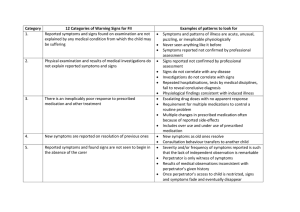
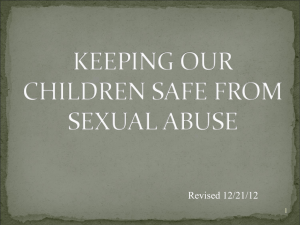
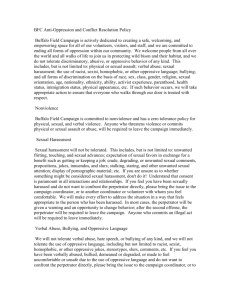

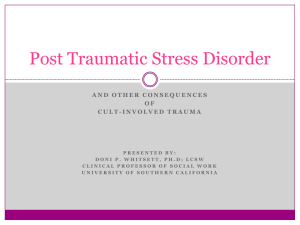
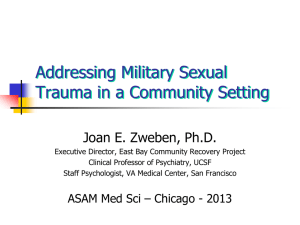




![ida07_ljubljana_witbrock_michael[1]](http://s3.studylib.net/store/data/009537085_1-e985bc7b48408e012b13fc0c41b7e444-300x300.png)
